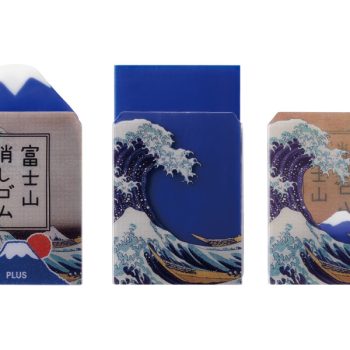
This is not a blog post in which I parse Haruki Murakami’s strategic use of repetition, or his methodical references to music, in search of deeper meaning, hidden within his near-1000 page opus 1Q84. In fact, I use “deconstruction” in the most literal sense.
Last winter when I traveled back with my family to spend Christmas and New Year’s in Tokyo, I lugged a copy of 1Q84 back with me. I had recently finished reading it and thought my Dad would enjoy it. After all, he was the one who started all this when he reached into his bookshelf and removed a dusty softcover of The Wild Sheep Chase, handing it to me with the warning, “this is one weird book.”
He accepted my gift graciously, seeming slightly daunted by its sheer mass. We returned to New York and and, after several weeks, I inquired. “Did you read it?”
“Not yet,” he told me. Several additional attempts resulted in the same answer until, finally, I stopped asking. My Dad liked to read on the train. The book simply must have been too heavy to accompany him on his daily commute to and from his University.
Last month they visited us in New York and, at one point, my Dad sat me down. “I finished the book,” he said, with a gleam in his eye. I knew which book he was talking about. He went on to confirm my thoughts that it was indeed too heavy to carry around. “I tried reading it in bed too. But when I put it on my lap – I kid you not – it would cut off my blood circulation.”
This seemed a bit far-fetched but I stayed on course: “So what did you do?” My dad opened his mouth but then paused. He turned and looked at my Mom, who was sitting next to him. She nodded. “You can tell him.”

As it turned out, my dad had taken an Exacto knife and, one-at-a-time, carefully sliced and removed 100 pages. This little mini-chapter of stapled pages slipped comfortably into his black shoulder bag. And when he finished it, he took the book out, sliced another 100 pages, stapled them together, and placed it into his bag. He repeated this process until he had finished the 944-page 1Q84. I was fascinated by this seemingly sacrilegious act and asked my Dad to send me pictures of the decimated paperback as soon as he got back to Tokyo, which he did.
Seeing the pictures I was at once both struck and reminded of the impermanence of books. I was no longer looking at a sacred object that had been desecrated, but at an object that had merely shifted form to adapt to its user’s needs. After all, what’s more important, a good book or a good read?





























September 7, 2012 at 3:18 pm
Hey whatever works for you. I like the feel of holding a book personally.
September 9, 2012 at 10:50 pm
Maybe time to buy dad a Kindle next time a gift is in order?
September 10, 2012 at 5:40 am
this is brilliant! I had the same problem reading Dickens, but have not gone that far…
September 10, 2012 at 10:22 pm
I love this story
February 14, 2013 at 12:12 am
this was a hard less for me, to finally accept that a book was just a thing. but i used to take many-month long journeys around asia, and i didn’t like to carry big books around. I would leave chapters behind me, like breadcrumbs to follow. I would do as your dad did when i had a home base i radiated out from.
now many years later, a published writer, and i know a book is the words and not the paper, because i actively dissected books